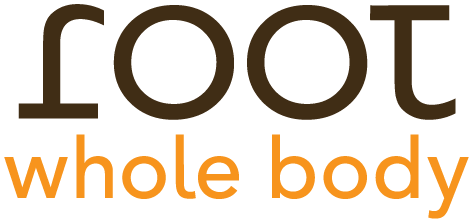“It is those crucial 9 months of development that sets a course of health that has far reaching implications.”
If you are pregnant or thinking about becoming, you may be getting all sorts of advice regarding what to do to have a healthy pregnancy. All the basics that you will learn from numerous pregnancy books and your midwife or obstetrician are extremely important. It is essential to be taking a prenatal vitamin if you are trying to become pregnant or could possibly be pregnant. It is also important to avoid high mercury fish, engage in exercise, eat more protein than you normally would, etc. Your physician or midwife will also be monitoring you to make sure you are not developing more serious conditions such as preeclampsia and gestational diabetes.
However, an emerging field of science called epigenetics examines just how pivotal the fetal environment is to the lifelong health of the baby and the discoveries being made are often not implemented or discussed by conventional medical practitioners. It is those crucial 9 months of development that sets a course of health that has far reaching implications. When scientists mapped the human genome they were surprised to discover that there are only around 20,000 human genes. This is extremely small in fact, it’s about the same number as earthworms! It does not explain the incredible diversity we see among human beings. So what does? The field of epigenetics is looking to find the answer to that question. “Epi” literally means above, and explores processes involved in the expression of our genes. Why do some genes turn on and others turn off? If your mom has rheumatoid arthritis, does that automatically mean you will get it? Of course not! Even if you have the genes for rheumatoid arthritis. It is our environmental exposures that control the expression of these genes and no time in our lives is more important in determining how our genes will express themselves than during our 9 months in utero.
There is much that is being discovered in the field of epigenetics
So what do we know practically about the best ways to optimize our genetic code so genes that could potentially cause harm will be turned off and others that will optimize our health will be turned on? There are 4 basic categories that can be looked at: nutrition, toxins, infections, and stress. Of course we all know it is important to be eating healthy during pregnancy, lots of iron rich foods to prevent anemia, plenty of protein, and enough folate to prevent spinal cord defects. It is also important to get optimal vitamin D, omega 3 fatty acids, choline, and certain B vitamins. It is important to make sure you are taking the ACTIVE form of B vitamins as some people have a difficult time transforming the inactive B vitamins to the kind the body can use. If possible, you want to get these nutrients on board before you conceive and during the first trimester as this is the time the epigenome is just being established. It appears our genome is most vulnerable to both positive and negative influences very early on in pregnancy, possibly the first couple of weeks when many women do not even know they are pregnant. Many of the nutrients mentioned above work on our epigenome by highlighting parts of the genetic code with either a “pay attention to this section” signal or a “don’t pay attention to this section” signal. Maintaining an ideal body weight before and during pregnancy as well as avoiding high carbohydrates and unhealthy fats also send signals to the genetic code of our little ones that they will be born into a world with plenty of healthy nutrition and there is no need to hold on to fat stores and possibly later develop obesity.
We also know that it is extremely important to avoid exposure to toxic chemicals. Especially BPA in plastics and can linings, phthalates in body products and fragrances, triclosan in antibacterial soaps, and parabens in cosmetics and body products. In addition, the air quality the mother is exposed to, particularly environmental air pollution from car exhaust can have an effect on whether the baby may develop heart malformations, autism, or have a decreased IQ. Make sure the cleaning products you are using around your house are all natural and if you live close to a highway it would be wise to get a HEPA air filter for your home or at least the bedroom.
Your obstetrician or midwife will talk to you about the importance of avoiding certain infections and will recommend flu shots. There is much debate in the integrative medicine community whether flu shots are necessary for the average healthy adult, however getting a flu shot during pregnancy may be wise as pregnant women are more vulnerable to catching a flu and the high inflammation that would result from this infection would potentially damage the fetus. Just make sure your doctor is giving you the mercury free (thimersol free) version of the flu shot that is administered in a single dose vial. Your doctor may talk to you about other infections to avoid such as toxoplasmosis; one might acquire this from cleaning out the cat litter box. In general, it is important to avoid infections as much as possible as high amounts of inflammation are now known to be detrimental to the fetus and has even been implicated in the development of schizophrenia. A naturopathic physician is a great resource regarding ways to keep inflammation in our bodies low, which involves not only avoiding infections, but also eating the right foods and taking certain supplements.
Don’t worry…occasional stress, the kind that the average person might experience in their day-to-day lives appears to be fairly benign for mom & babes.
And lastly, maternal stress during pregnancy has also been shown to very negatively affect fetal development. What kind of stress are we talking about? Either continuous exposure to lower grade stress such as a negative relationship with one’s partner or an unfavorable job situation or exposure to a highly stressful event such as the shock that may occur with the death of a loved one or other extreme stressor. Occasional stress, however, the kind that the average person might experience in their day-to-day lives appears to be fairly benign. So a mom shouldn’t stress about every little moment she isn’t in a state of calm and zen! We all go through natural ups and downs and that is ok, however, taking time for relaxation, yoga, meditation, and massage will do mom and baby tons of good as stress negatively affects neurological development in fetuses as well as the development of their immune systems. The results of which could be lowered IQ, inhibition or motor skills, the ability to concentrate, as well as the development of various allergic diseases. It has also been shown that mom’s with high anxiety or depression have babies that seem to be less relaxed, poor sleepers, and maybe even be termed “colicky.” We don’t know a lot about colic, but it is a term we use to describe little ones that struggle with sleep and seem to be unhappier more than we would like.
There is so much that is being discovered in this field. When moms find out that the choices they make for a mere 9 months can affect the lifelong health of their baby they are often motivated to make these lifestyle changes. Finding a naturopathic physician who is well versed in this field early on, ideally before conception, can have a huge impact on the lifelong health of the baby. An expert in this area will also be a resource for practical things you can do to optimize your pregnancy, the correct dosage to take of supplements, and be a support if something pops up during pregnancy that is unexpected.
This article is written by Dr. Laura Wollman. For more information, email her at drwollman@rootwholebody.com or call us to book a free 15 minute consultation. 503.288.7668



